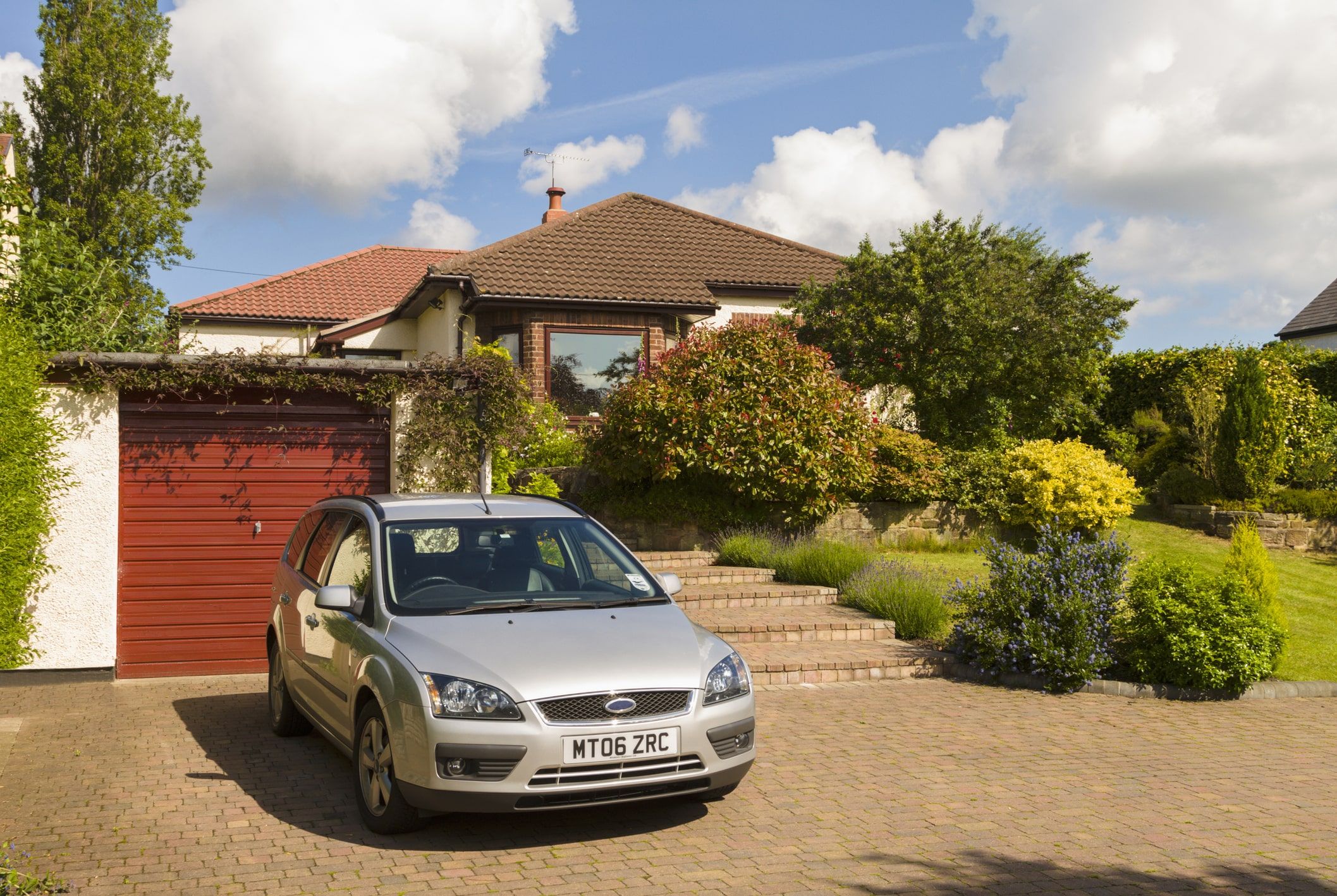Car Extended Warranty & Insurance
Car Extended Warranty Insurance
As vehicles age, the risk of mechanical or electrical failure naturally increases. While a standard manufacturer’s warranty covers your car for a limited time or mileage, it doesn’t last forever. That’s where a used car warranty or car warranty for used cars becomes valuable. It provides continued protection once your original warranty expires, helping cover the cost of repairs or replacements for key components. Whether you're buying a second-hand vehicle or keeping your car for the long haul, this type of auto warranty for used cars can give you peace of mind and protect you from unexpected expenses.
By extending your vehicle’s coverage beyond the manufacturer’s warranty, a used auto warranty or car used warranty helps ensure that vital systems, like the engine, transmission, or electronics, remain protected against sudden breakdowns. If you're looking to minimise future repair bills while maintaining performance, understanding the extended warranty benefits is key to making an informed decision.
What is Car Extended Warranty Insurance?
A car warranty cover is a promise by the vehicle manufacturer to repair or replace factory-faulty components within a set period, typically 1–4 years or until a certain mileage is reached. Once this warranty ends, you can choose car extended warranty insurance to continue enjoying similar protection. This is especially useful for those planning to retain their vehicle long-term or looking for used car warranty or used auto warranty options.
Extended warranty benefits include coverage for key components like the engine, gearbox, transmission, cooling system, steering, suspension, braking system, air conditioning, fuel system, electrical parts, and safety systems (like airbags and seatbelts). Labour costs are also usually included if repairs are carried out at authorised service centres.
While extended warranties complement comprehensive car insurance, they do not replace it. They also do not cover regular maintenance or consumables. If you’re comparing options, remember that manufacturer-backed plans offer better reliability than most third-party car warranty providers.
What is a Car Insurance Policy?
Car extended warranty insurance is extra protection you can buy once your manufacturer’s warranty runs out. It helps cover the cost of repairs for key parts like the engine, transmission, or electrical systems, things that can wear out over time. This type of plan is especially handy if you're planning to hold on to your car for a few more years or have recently picked up a used car.
For example, let’s say you’ve bought a four-year-old sedan. The original warranty has expired, and a few months in, the AC system suddenly fails. With a used car warranty, you're not left paying the full bill, it helps take care of the cost, saving you from surprise expenses.
One of the biggest extended warranty benefits is peace of mind. It’s different from comprehensive car insurance or third party car insurance, which cover accidents or third-party damage. Extended warranties focus more on your car’s health and keeping long-term maintenance affordable.
If you're looking to make your car ownership less stressful, especially with an older or second-hand vehicle, this might be worth exploring.
Car Warranty Plan Types
New Car Warranty
Offered with your purchase of the new car. It usually lasts 1 - 4 years with a limit on the total number of kilometres – whichever is exhausted first. Covers the repair/replacement of electrical and mechanical parts of the car at no additional cost.
Extended Car Warranty
Optional warranty that can be bought on the new car’s purchase or after the standard car warranty cover expires. It is usually cheaper to buy one when buying your car and it can be bought through the dealership or directly from the manufacturer.
Most manufacturers generally have a clause that only allows you to opt for extended warranty benefits before the standard warranty ends.
We recommend checking the terms and conditions to ensure when you can buy one if you want to get an extended warranty cover, as this can vary across manufacturers.
Read more: 5 Types of Car Insurance Coverage in India
Extended Car Warranty Coverage and Exclusions
Coverage
Repair or replacement costs due to mechanical or electrical breakdowns that happen after the manufacturer’s warranty ends.
Covers key components such as the engine, gearbox, brakes, and electrical systems, especially when failure is due to manufacturing defects.
Includes labour costs if the repair is carried out at an authorised service centre.
Exclusions
Routine wear and tear parts like clutch plates, brake pads, suspension, etc.
Regular maintenance services such as oil changes, filter replacements, or check-ups.
Cosmetic damage – fading paint, rust, or torn seat covers aren’t covered.
Accidental damage from road mishaps, natural calamities, or theft.
Diagnostic charges and consumable items (coolants, lubricants, etc.).
Software issues or faults not directly related to hardware.
Repairs at unauthorised workshops—these can void your warranty.
Modified vehicles or cars used outside standard terms of usage
Difference Between a New Car Warranty and an Extended Car Warranty
| Parameter | New Car Warranty | Extended Car Warranty |
|---|---|---|
| Cost | Free with new car purchase | Optional, paid coverage that extends warranty period |
| Warranty Period | Usually 3 years or 1,00,000 km, whichever is earlier | Extends coverage beyond new car warranty; duration varies by manufacturer, often 1–4 years extra |
| When to Buy | Automatically included at purchase | Must be purchased before the standard warranty expires; late purchase generally not allowed |
| Who Offers | Manufacturer via dealership | Manufacturer or dealership; sometimes third-party providers mainly for used cars |
| Coverage | Covers repair or replacement of mechanical and electrical parts due to defects; excludes wear & tear and consumables | Extends similar coverage beyond standard warranty; specifics vary, may or may not include additional services like corrosion protection or roadside assistance |
| Important Details | Warranty starts from the vehicle purchase date | Provides extended protection to reduce out-of-pocket repair costs after factory warranty ends |
Used Car Warranty: Do Used Cars Come With a Warranty Cover?
Used cars typically don’t come with a default manufacturer warranty unless the original warranty is still valid and transferable. In India, most warranties are vehicle-specific, so if the car is relatively new, you may still benefit from the remaining coverage.
If not, you can opt for a used car warranty from:
Manufacturers or authorised dealerships: Certified Pre-Owned (CPO) programmes often include extended coverage for mechanical and electrical parts.
Third-party providers: Independent companies offer used auto warranties with varying levels of coverage and service quality.
Used car dealers: Some offer basic warranty packages covering key components like the engine and even electrical parts.
Always review the terms. Most plans exclude wear and tear, consumables, accidental damage, and modifications.
Extended Car Warranty Vs Insurance
| Parameter | Extended Car Warranty | Car Insurance |
|---|---|---|
| When Can I Buy? | At new car purchase or before standard warranty expires. Not available post-expiry. | Anytime before policy expiry. Mandatory to have at least third-party car insurance in India. |
| Is It Mandatory? | No, it's optional. | Yes, by law at least third-party insurance is required. |
| Cost | Fixed premium. Cheaper when bundled with new car. Depends on term and coverage. | Varies by policy type (third-party, comprehensive car insurance), car details, location, etc. |
| Coverage | Covers repairs/replacements for mechanical/electrical faults due to manufacturing defects. Excludes wear & tear, accidents, etc. | Covers damage from accidents, theft, fire, calamities, and third-party liability. Doesn't cover defects. |
| Mechanical/Electrical Faults | Covered if due to manufacturing defect. | Not covered unless specific add-ons like zero depreciation car insurance or engine protect are chosen. |
| Theft/Total Loss | Not covered. | Covered under comprehensive car insurance. Not under third-party. |
Extended Warranty Benefits:
An extended car warranty offers more than just added protection. It can also prove to be a smart financial move for long-term car owners. Here’s how it can benefit you:
Save on Repair Costs: Repairs for major components like the engine, gearbox, or electrical components like air conditioning can be high. In these cases, an extended warranty cover is ideal, especially if you frequently use your car for work.
Increase Your Car’s Longevity: If you intend to use your car long-term, an extended car warranty plan can be beneficial. It can save you from paying labour charges for complicated repairs, which can be expensive.
Better Resale Value: An extended warranty cover can increase your car’s resale value, helping you get a better deal for your car. This is because potential buyers are assured a layer of financial protection on their purchase.
Read more: Benefits of Car Insurance
Who Should Buy Extended Car Warranty?
An extended car warranty not only protects your vehicle but also offers several practical advantages that can save money and enhance ownership experience.
| Benefit | Description |
|---|---|
| Save on Repair Costs | Covers major component repairs (engine, gearbox, electricals) and labour charges, easing unexpected expenses. |
| Increase Car Longevity | Supports timely and affordable repairs, helping extend the overall life of your vehicle. |
| Better Resale Value | Transferable warranty boosts buyer confidence and may increase your car’s resale price. |
| Nationwide Service | Valid at authorised service centres across India, ensuring quality repairs with OEM parts. |
| Peace of Mind | Reduces worry about breakdowns after factory warranty ends, offering long-term protection. |
Things to Consider Before Buying Extended Car Warranty Covers
While an extended car warranty can offer valuable protection, it's important to evaluate whether it fits your ownership plans and usage needs. Here are key factors to keep in mind before purchasing one:
Not Ideal for Short-Term Owners: If you plan to sell the car in a few years, an extended warranty may offer limited value, even if it slightly improves resale appeal.
Comes at a Cost: Extended warranties can significantly increase your overall car expense. Make sure the added protection justifies the price, especially if your car is already highly reliable.
No Coverage for Wear and Tear: Wear-and-tear items like brakes, clutch, and suspension are excluded from day one, even if they fail early. Only manufacturer-related mechanical or electrical issues are typically covered.
You May Not Use It: Modern cars often don’t experience major failures within the extended warranty period. These plans usually last 1–4 years beyond the factory warranty, so consider how likely you are to claim.
Third-Party Plans Can Be Limited: Third-party warranties may offer narrower coverage, fewer service options, or use non-OEM parts. Always review the policy terms and provider reputation carefully.
Best for Long-Term or Heavy Use: Extended warranties are most valuable if you plan to keep the car long-term or drive it frequently, where the risk of high repair costs increases.
How to Buy Extended Car Warranty?
Buying an extended car warranty ensures continued protection against high repair costs once the standard warranty ends. Whether it's for a new or used car, knowing your options can help you make a smart decision.
You can buy an extended car warranty when purchasing a new vehicle—this is often more affordable and gives wider coverage.
Some manufacturers allow upgrades later, but only within a limited period from the car’s purchase date.
Carefully review the coverage terms before buying to ensure they meet your repair and service needs.
For older vehicles, a used car warranty or car warranty for used cars is ideal.
Third-party providers also offer used auto warranty options if the car used warranty from the manufacturer has expired.
How to Buy Car Insurance?
At Tata AIG, you can buy third-party or comprehensive car insurance for your new car. This entire process can be done online in just a few clicks! Here is a step-by-step process:
Visit our Car Insurance page.
Enter your car registration number and click Get Price.
Fill out the insurance application form and upload the required KYC documents – ID proof, address proof, bank details, etc.
Select the add-ons you want (for a comprehensive plan). These are not mandatory and can be skipped.
Submit your car insurance application form and pay the fees.
After verifying your car insurance application, we will send a PDF copy of your policy to your registered email.
Further Reading:
Car insurance renewals can be conveniently done online on our website. It is important to renew your policy before the expiry date or within the renewal window of 30 days after policy expiry to maintain continuous coverage and preserve your no-claim bonus. Renewing your policy early, typically 15 to 30 days prior to expiry, is recommended to avoid any coverage gaps.
We also offer a fully online car insurance claim facility where you can initiate, submit, and track your claims easily, ensuring transparency and real-time updates throughout the claims process.
Wrapping Up
A car warranty cover and a car insurance policy are both practical assets to have as a car owner. They both offer financial protection under different circumstances, with one covering for the other’s exclusions.
If you plan to use your new car for the long term, opting for an extended cover can be beneficial, as it can save on major repair costs. This, combined with a car insurance policy from Tata AIG, can offer all-around protection from most perils.
Disclaimer / TnC
Your policy is subjected to terms and conditions & inclusions and exclusions mentioned in your policy wording. Please go through the documents carefully.


